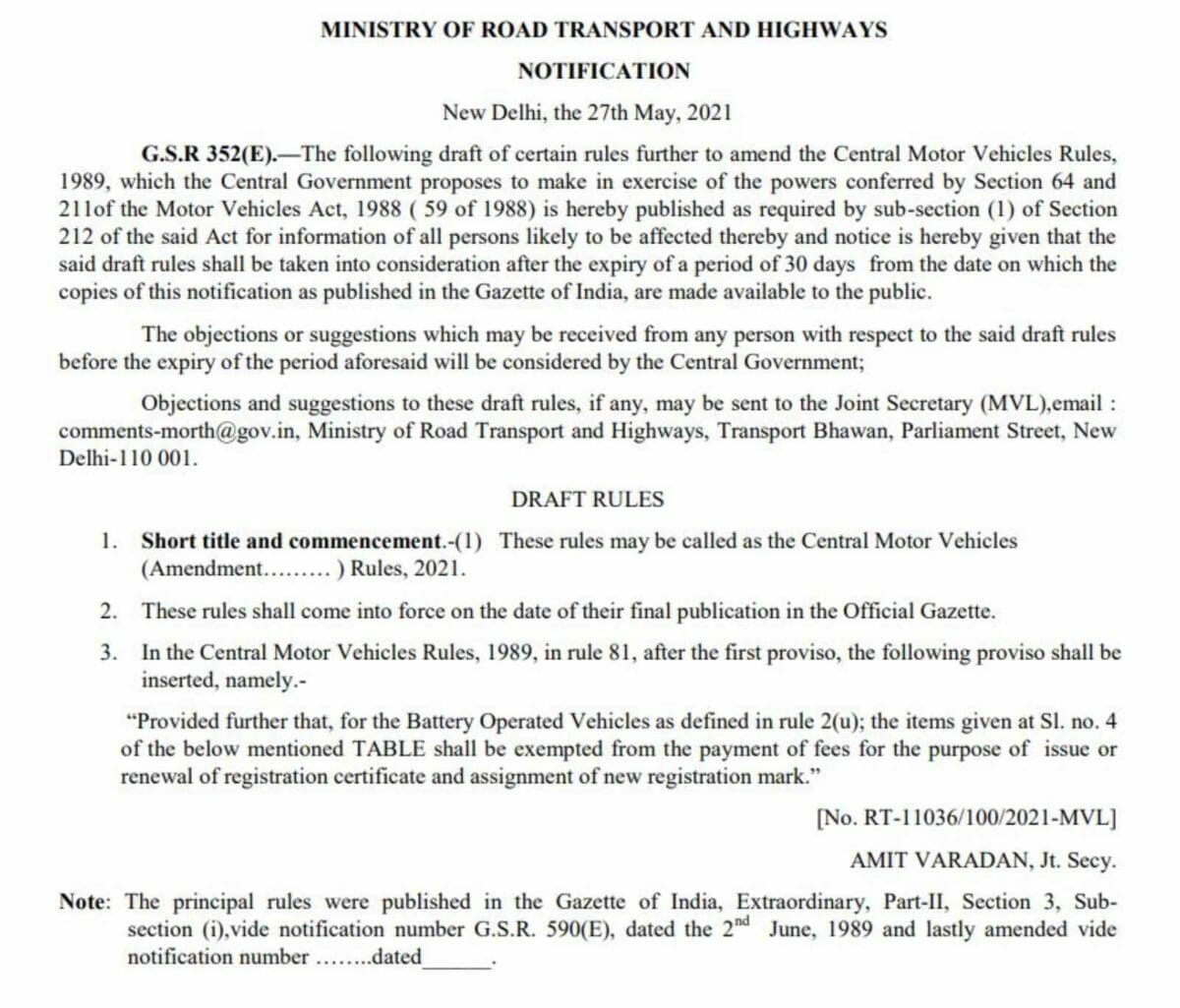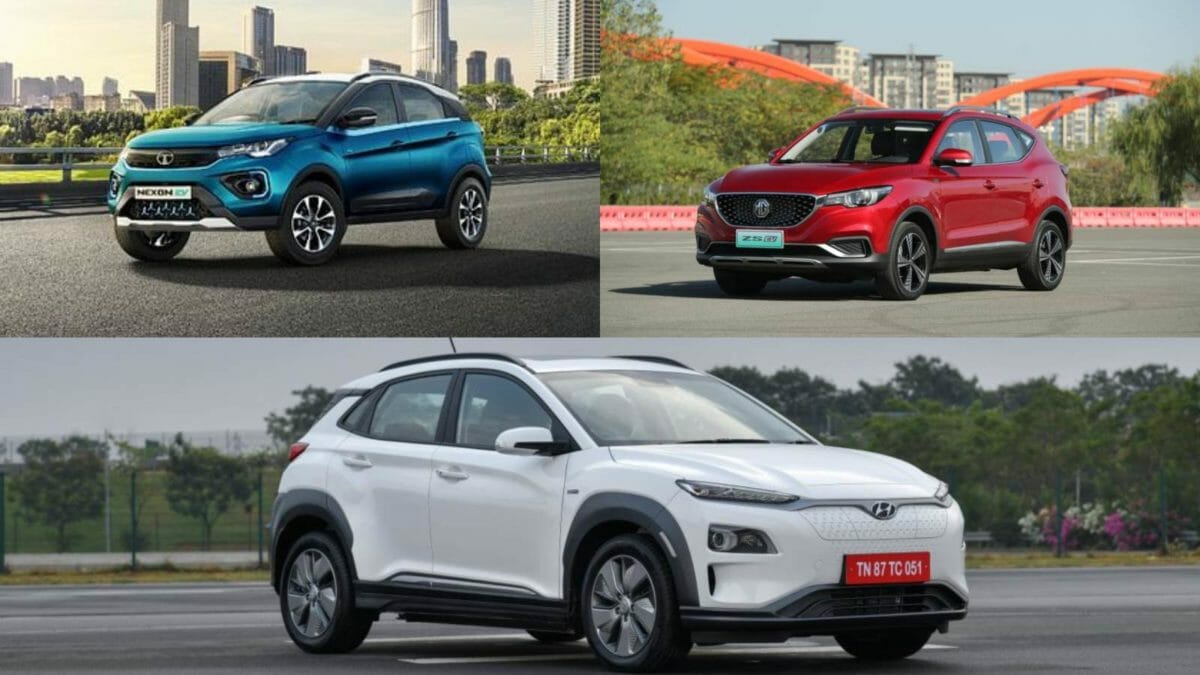The registration and renewal costs of EVs are most likely to get affordable. A draft issued by the Ministry of Road Transport and Highways (MoRTH) proposed to exempt Battery Operated Vehicles from paying fees for assignment of new registration and renewal of Registration Certificate. The draft issued on May 27 is currently open for comments from the public and all stakeholders till Jun 26.
The Notification Draft
There is an addition of a line in Rule 81 of the Central Motor Vehicles Rules, 1989. There are no additional details provided.
The notification states: “Provided further that, for the Battery Operated Vehicles as defined in rule 2(u); the items given at Sl. no. 4 of the below-mentioned TABLE shall be exempted from the payment of fees for the purpose of issue or renewal of registration certificate and assignment of the new registration mark.”

Battery Operated Vehicles (BOV) in Rule 2(u) are defined as “vehicle adapted for use upon roads and powered exclusively by an electric motor whose traction energy is supplied exclusively by traction battery installed in the vehicle” with certain exemptions.
Rule 81 refers to the different fees chargeable to vehicle owners ranging from grant and renewal of trade certificate for vehicles to issue of registration certificates, transfer of ownership and more. SI no 4 within Rule 81 in particular deals with the fees chargeable for the issue and renewal of certificates of registration and assignment of the new registration mark for all categories of vehicles.
This is a major step taken by the ministry to encourage consumers to adopt electric vehicles and move towards a greener environment.
Position of EVs in India
With the rising fuel prices in India, EVs offer a good alternative to vehicles with Internal Combustion Engines (ICE). However, the cost of purchasing an EV is much higher than its ICE counterpart. EVs though expensive to purchase have very low running and maintenance costs. This move from the ministry will definitely give consumers something more to consider while purchasing a new car. However, range anxiety and the lack of a robust infrastructure for charging the vehicle tends to put off the EV buyer.

The Indian consumers have a very limited choice when considering an EV. While Tata has two offerings in the form of the Tigor EV and the Nexon EV, the Tigor EV is limited to commercial use only. Tata Nexon EV since its launch has been enjoying the top spot on the sales charts as it is the cheapest of the other offerings starting at ₹13.99 lakh. The next option is the MG ZS EV which recently got updated with a new battery pack and a higher ground clearance and is priced upwards of ₹21 lakh. The Hyundai Kona Electric has a class-leading range of 450km and is priced at ₹25 lakh. Premium manufacturers have also entered the EV market, Jaguar launched their I-Pace earlier this year while Mercedes-Benz brought the EQC to India. Audi too is set to bring the e-Tron SUV soon. We should also be able to see a few launches from Maruti and Mahindra in the coming months.
